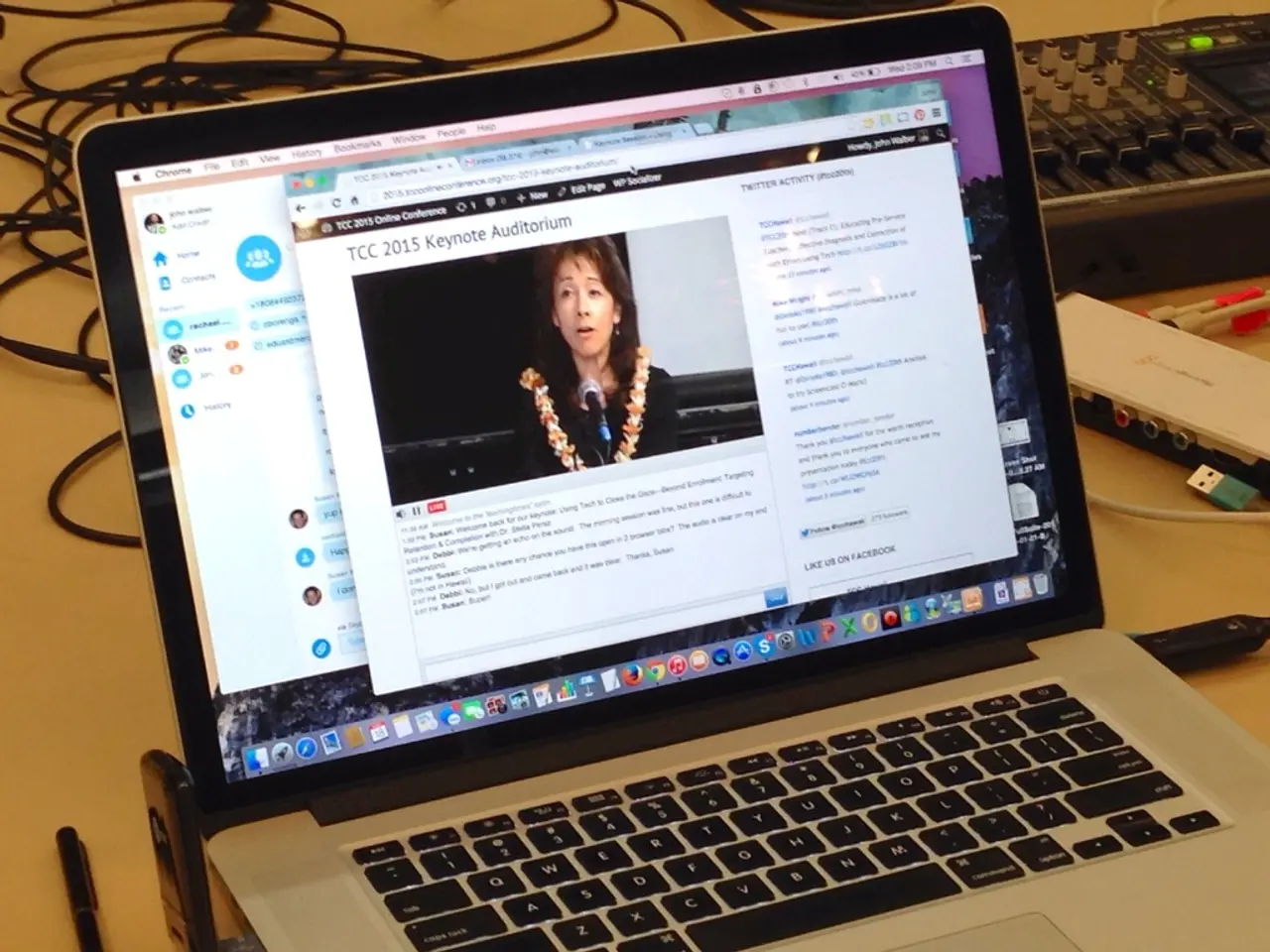Workweek shortened to 32 hours by Mental Health Foundation study indicates improved employee wellbeing without hindering productivity levels
In a groundbreaking move, the Mental Health Foundation, the UK's leading charity focused on the prevention of poor mental health, has permanently adopted a 32-hour working week following a successful year-long pilot. This shift in working hours is set to bring significant benefits across mental health, work-life balance, productivity, and recruitment/retention.
Mental Health and Wellbeing
The reduction in hours has strongly correlated with improved mental health. Over 68% of employees report better mental wellbeing and less work-related stress under a 32-hour week. Employees experience improved mood, reduced anxiety and fatigue, and enhanced ability to manage challenges, leading to a greater sense of control and focus [1][3][5].
Work-Life Balance
Nearly 80% of workers surveyed report a better work/life balance with more time for personal interests, family, study, or caring responsibilities. The flexibility to arrange hours enhances this effect, particularly benefiting parents, carers, those with disabilities, or long-term conditions [1][3]. Such flexibility also helps reduce burnout and provides time for rest and hobbies [3][4].
Productivity
Contrary to concerns that fewer hours might harm performance, self-rated productivity actually rises or remains stable during a 32-hour week. Organizational leadership reports no detriment to achieving strategic goals. Some studies highlight productivity gains comparable to or exceeding typical 40-hour weeks, supported by reduced fatigue and better focus. For example, similar schedules like Microsoft Japan’s four-day week saw a 40% increase in productivity [1][3][4][5].
Recruitment and Retention
Shorter workweeks significantly improve staff recruitment and retention. One charity doubled its average applications per role after adopting a 32-hour week, with flexible hours proving a stronger attractor than salary for many applicants. Additionally, staff turnover intentions halved within a year, reflecting higher job satisfaction and reduced stress [2]. In competitive labor markets, especially with younger workers prioritizing flexibility, offering fewer hours is a key advantage [2][4][5].
The Mental Health Foundation's decision to adopt a 32-hour working week has been praised by the 4 Day Week Foundation, which commended the organization for its forward-thinking approach. The charity has also received Gold Standard accreditation from the 4 Day Week Foundation with the change to a shorter week.
For employees like Aaron Campbell, a Marketing and Communications Assistant, the 32-hour working week is a game-changer. Aaron cited the reduced hours as a contributing factor in his application for the role at the Mental Health Foundation, allowing him to balance both his work and numerous activities and groups outside of work.
The evaluation of the pilot found that part-time staff reported a larger decrease in work-related stress than full-time colleagues. It also showed no drop in productivity, and some teams reported improved performance due to better prioritization and more efficient working practices.
As the Mental Health Foundation believes that workplaces have a vital role in supporting good public mental health, this shift towards a shorter working week is a significant step towards creating a more supportive and balanced work environment. A report titled "The impact of a shorter working week" provides further insights into the benefits of this approach.
References:
[1] 4 Day Week Global (2022). The 4 Day Week: A Review of the Evidence. Retrieved from https://4dayweek.com/wp-content/uploads/2022/04/The-4-Day-Week-A-Review-of-the-Evidence-April-2022.pdf
[2] Autonomous Workers Cooperative (2021). The 4 Day Week: A Comprehensive Analysis. Retrieved from https://www.autonomous.coop/wp-content/uploads/2021/06/The-4-Day-Week-A-Comprehensive-Analysis.pdf
[3] Mental Health Foundation (2023). The Impact of a Shorter Working Week on Mental Health. Retrieved from https://www.mentalhealth.org.uk/publications/the-impact-of-a-shorter-working-week-on-mental-health
[4] The Flexible Working Centre (2022). The 4 Day Week: A Guide for Employers. Retrieved from https://www.flexibleworking.org.uk/wp-content/uploads/2022/04/The-4-Day-Week-A-Guide-for-Employers.pdf
[5] The Happy Worker (2021). The 4 Day Week: A Review of the Evidence. Retrieved from https://www.thehappyworker.co.uk/wp-content/uploads/2021/06/The-4-Day-Week-A-Review-of-the-Evidence.pdf
- The Mental Health Foundation's shift to a 32-hour workweek, based on science and prevention of poor mental health, has significantly decreased work-related stress and improved mental wellbeing for over 68% of its employees, reducing anxiety, fatigue, and enhancing their ability to manage challenges.
- In addition to mental health benefits, this shorter workweek has led to a better work-life balance for nearly 80% of workers, providing more time for personal interests, family, study, or caring responsibilities, thus reducing burnout and offering time for rest and hobbies.
- Despite concerns about potential drops in productivity, self-rated productivity remains stable or even rises during a 32-hour week, with some studies showing productivity gains comparable to or exceeding typical 40-hour weeks.
- This new working schedule has also resulted in a significant improvement in staff recruitment and retention, with applicants prioritizing flexibility over salary in many cases, and reduced staff turnover intentions, reflecting higher job satisfaction.
- In the highly competitive finance, business, and careers sectors, adopting a shorter workweek is increasingly becoming a key advantage for organizations seeking to attract and retain top talent, particularly among younger workers who prioritize flexibility.
- As the Mental Health Foundation believes that workplaces play a crucial role in promoting good mental health, this move towards a shorter working week is a significant step towards creating a more supportive and balanced work environment, contributing positively to their employee's overall health and wellness.




